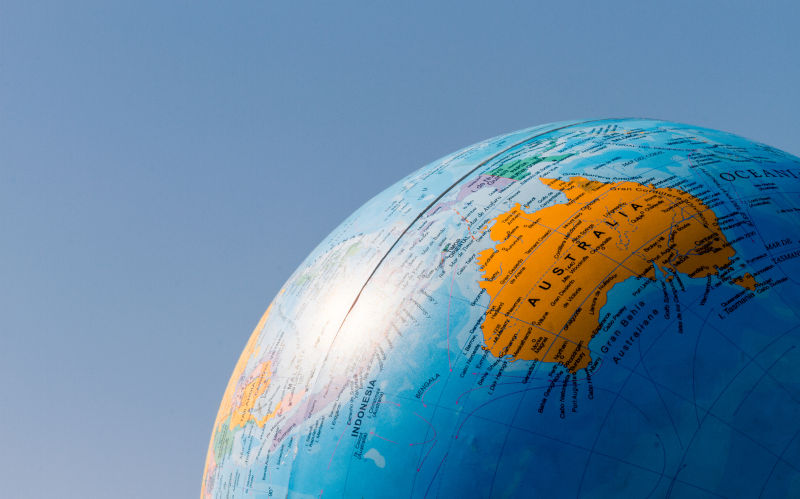The Voice: what the world heard
October 20, 2023
On Saturday, 14 October, Australians did themselves no favours. Again.
The world is perplexed and dismayed by Australians decision to deny Aboriginals a Voice to parliament. Comments frequently heard include sad and incomprehensible; others use stronger terms. Still others just shake their heads in sorrow.
Conversations with Europeans and Americans has been at once predictable and surprising. At a time when race and the rights of underprivileged or marginalised groups are hot topics, people are unsurprisingly dismayed, and while many describe it simply as very sad, one senses other thoughts unexpressed; not one person had a positive word to say about this outcome. Yet when asked if this alters their perception of Australia and Australians, all say no, it hasnt. Why? Because they had long been aware of Australias poor treatment of its First People, and this just confirms that perception. The word backward was heard several times and a few people even drew comparisons with Apartheid South Africa. Ouch.
The media in Europe and North America echo these sentiments. Le Figaro and The Huffington Post describe the No campaign as having featured an avalanche of racist disinformation in online media, while Amnesty International reports galloping disinformation in the No campaign.
Interviewed on Radio France, Charlotte Epstein, Associate Professor in the Department of Government and International Relations at the University of Sydney, describes the result as worrying, that Australians have missed a historic opportunity, and answered not the question asked them, but another, such is the effect of the disinformation campaign they were subject to. In this, she perceives similarities to the 2016 Brexit vote in Britain, where a campaign of disinformation led Britons to vote to leave the European Union. She adds that the referendum result makes Australia seem detached from the rest of the world.
Libration, also in France, describes the result as a major disappointment, an opportunity missed that might have helped dress the wounds still raw from a past characterised by colonialism and racial repression.
TikTok estimates that, had Aborigines held a referendum on British settlement in Australia, they probably would have voted No.
France TV Info, reporting from New Caledonia, where a similar issue arose some decades ago, has particular resonance for Australias First People and for all Australians. The news site sees this vote as evidence that Australia is still in a state of colonisation, and that this referendum shows how lucky New Caledonians are to be in a French territory, (in which the Noumea Accord of 1968 provided for the irreversible transfer of political competences from Paris to Noumea).
Australias image abroad has certainly been harmed, especially when considered in the context of other events. First, of the devastating bushfires during the Summer of 2019-2020, drew attention to our ranking as one of the worlds most prolific greenhouse gas emitters, as well as the 2019 final approval of the Adani coal mine in Queensland when the risks posed to the Great Barrier Reef, a UNESCO World Heritage site, were dismissed out of hand. A prime minster who boasted a lump of coal on his desk reinforced the image of Australia as a climate laggard, even recalcitrant, out of touch with the rest of the world.
Then came AUKUS and a relatively rare spotlight on Australias foreign policy, that cast doubt on its trustworthiness. Prime Minister Albaneses attempts to mitigate that damage, laudable in themselves, have not yet erased that image.
What does it matter what others think of Australia? It matters because being perceived as unreliable, or worse, with a poor record on climate-related issues, will inevitably be a drag on efforts to strengthen our relations with other countries, not least Pacific Island nations. Shunning a golden opportunity to redeem some of our reputation for fairness serves only to reinforce an already sullied image as racist.
Economically, Australia is rich and strong, but it is not rich and strong enough to develop its potential without investment from beyond its shores. Yet investors will naturally balk at committing to long-term engagement in a country with a record of poor environmental stewardship, which may someday be confronted with its shabby treatment of its First People and its insensitivity to their reasonable needs. It is hard to command respect, even from allies, when perceived as unreliable, environmentally irresponsible and now, confirmed as backward and racist.
When the Mabo decision of 1992 recognised Native Title in Australia, Australians could hold their heads high. Our country has natural treasures and unique and enviable geographical position, with no land borders to defend and direct access to both the Indian and Pacific Oceans, that other countries can only dream of. It should be perceived as a steadfast, independent ally with an impeccable record on human rights and a standard-setter for environmental stewardship for other countries to aspire to emulate. We have work to do before we can again hold our head as high as in 1992.
